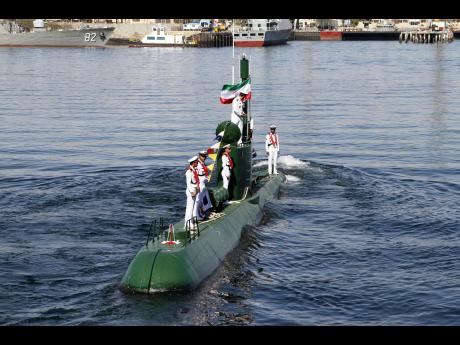Iran vows to close key strait if US cuts off oil exports
Iranian President Hassan Rouhani on Tuesday repeated his threat to close the Strait of Hormuz, the passageway for nearly a third of all oil traded by sea, if the United States shuts off Iran's oil exports.
State TV quoted Rouhani as saying that "if someday, the United States decides to block Iran's oil [exports], no oil will be exported from the Persian Gulf".
The strait at the mouth of the Persian Gulf is crucial to global energy supplies.
Rouhani also pledged that the United States would not be able to prevent Iran from exporting its crude.
Rouhani has made similar threats in the months since President Donald Trump withdrew the US from the 2015 nuclear deal and began restoring sanctions. Trump has vowed to eventually cut off all Iranian oil exports, but the administration has given waivers to several countries.
The tough talk from Rouhani, a relative moderate, has meanwhile been warmly received by his domestic hard-line rivals.
Threat dismissed
Brian Hook, the US representative for Iran policy, dismissed Rouhani's threat, noting that Iran does not control the Strait of Hormuz.
"The strait is an international waterway. The United States will continue to work with our partners to ensure freedom of navigation and the free flow of commerce in international waterways."
Later on Tuesday, Rouhani said he had rejected multiple US requests for direct negotiations.
"In the past year, the current US administration sent eight direct messages to negotiate," he was quoted as saying by the semi-official Tasnim new agency. "I refused."
He said he had also rejected an American request for indirect negotiations mediated by three European countries, without providing further details.
Trump has said he is willing to meet with Iran's leaders. But Supreme Leader Ayatollah Ali Khamenei, who has the final say on all major policy decisions, has said Iran is forbidden from negotiating with the US.
Khamenei had cautiously approved the months of direct negotiations that led to the 2015 nuclear accord, in which Iran curbed its uranium enrichment in exchange for the lifting of international sanctions.
But he has said that Trump's decision to withdraw from the agreement, despite Iran's continued compliance, proves, the US cannot be trusted.

